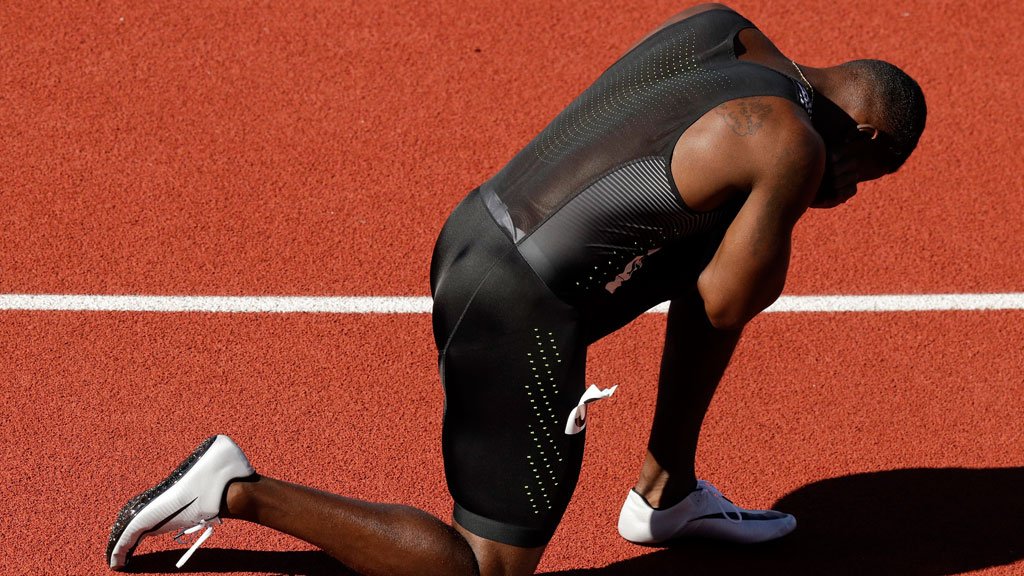

In the 1988 Summer Olympics in Seoul, the erstwhile Canadian track and field star Ben Johnson struck gold in 100m. Three days later, he was banned for doping and had to let go of his medal. Although he tried mounting a comeback, he never got going again. And soon, he was banned for life for a second offense. Johnson’s was an open and shut case. He himself admitted that he had been taking steroids since 1981. The case for another track and field athlete that came after him, however, was not so simple.
Watch What’s Trending Now!
Much like Johnson, Justin Gatlin was banned twice on account of testing positive for banned substances. The first one came in 2001, during his collegiate years. The second one plagued him more. In 2006, the United States Anti-Doping Agency (USADA) handed him a four-year ban, active from May 25 that year. Gatlin served both suspensions in his life and also he made a comeback in 2010. But was he accepted?
Gatlin’s return did not sit well with people. Recalling that phase on the Run Your Race podcast, Gatlin said, “People still hated on me all the way to the point of my retirement.” It seemed as if the doping bans had damaged Gatlin’s credibility permanently.
ADVERTISEMENT

ADVERTISEMENT
In the podcast, Gatlin said that he was not allowed to compete in many Diamond League races. He claimed, “I told you each leg there is a meet promoter. They get together; they’re the collective basically. They’ll sit and say, ‘Well, we don’t want Justin Gatlin in our race.’ So literally throughout my whole rest of my whole career even me running fast, running the most 9:7s in history and everything, there’ll be at least two or three races that would not let me back in their race or they’ll be like, ‘Yeah, you can come but we’re not going to pay you.’” The controversial figure further claimed that even when he would be paid, the payment wouldn’t be enough to even buy a plane ticket home. While the world had made up its mind that Gatlin was a cheater, he always thought of himself as a good guy.
So, Gatlin never pleaded guilty, unlike Johnson. Both times, he had his justifications to share. In 2001, when he was found positive for consuming amphetamine, his defense was that the element had entered into his system through the attention deficit disorder (ADD) medication. In his youth, he had to go through medication and, according to him, it wasn’t illegal. “Last time I checked, someone who takes medication for a disorder is not a doper,” Gatlin told The Guardian in an interaction. The authority reduced the 2-year suspension to one year later, after a hard-fought legal battle. As far as his 4-year ban was concerned, Gatlin’s stance remained the same.
ADVERTISEMENT
On Run Your Race, the four-time world champion accused his massage therapist of rubbing testosterone on his legs during a session. As per him, it was through those rubbings that the banned element entered his body system, and he tested positive. However, Gatlin had to pay an enormous price because of his second ban. The World Athletics canceled his 100m world record (9.77 seconds) claimed during that timeline. Gatlin, however, refused to give up.
Justin Gatlin’s credibility took a hit, but what about his performance?
After his return to track and field sports in 2010, Justin Gatlin bounced back as far as his performance was concerned. He improved his performance and claimed some memorable milestones. Such as? In the 2012 US Olympic trials, he took 9.80 seconds to finish the 100m event. The timing stood as the record claimed by any sprinter aged more than 30 years. In 2015, he demolished his own record and set it for 9.74 seconds. Can you guess what his age was at that time? 33 years!
ADVERTISEMENT

Getty
LONDON, ENGLAND – AUGUST 05: Justin Gatlin of the United States raises a finger to his lips to following his win in the Men’s 100 metres final in 9.92 seconds during day two of the 16th IAAF World Athletics Championships London 2017 at The London Stadium on August 5, 2017 in London, United Kingdom. (Photo by Michael Steele/Getty Images)
Apart from that, in the 2012 London Olympics, Justin Gatlin raced against the prime Usain Bolt. In the 100m final, he took 9.79 seconds to set the bar for the sprinters, aged more than 30 years. He ended the race in the third position. Four years later, in Rio, he changed the color of his medal in the 100m. At 34, he bagged the Olympic silver medal. The best Olympic achievement for a non-relay sprinter, aged more than 30. Next year, he defeated Usain Bolt in the World Championships to claim the gold in the 100m event final. By then, he was 35! So what do you think? Did the track and field legend face any lows in his performance because of outside noise?
ADVERTISEMENT
ADVERTISEMENT
ADVERTISEMENT
ADVERTISEMENT

